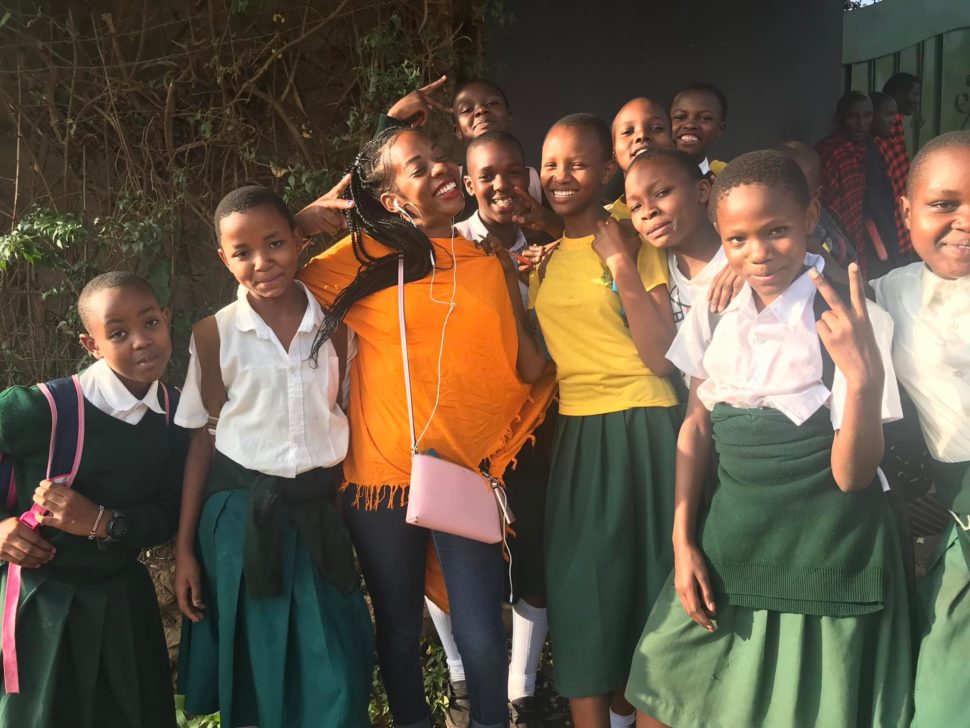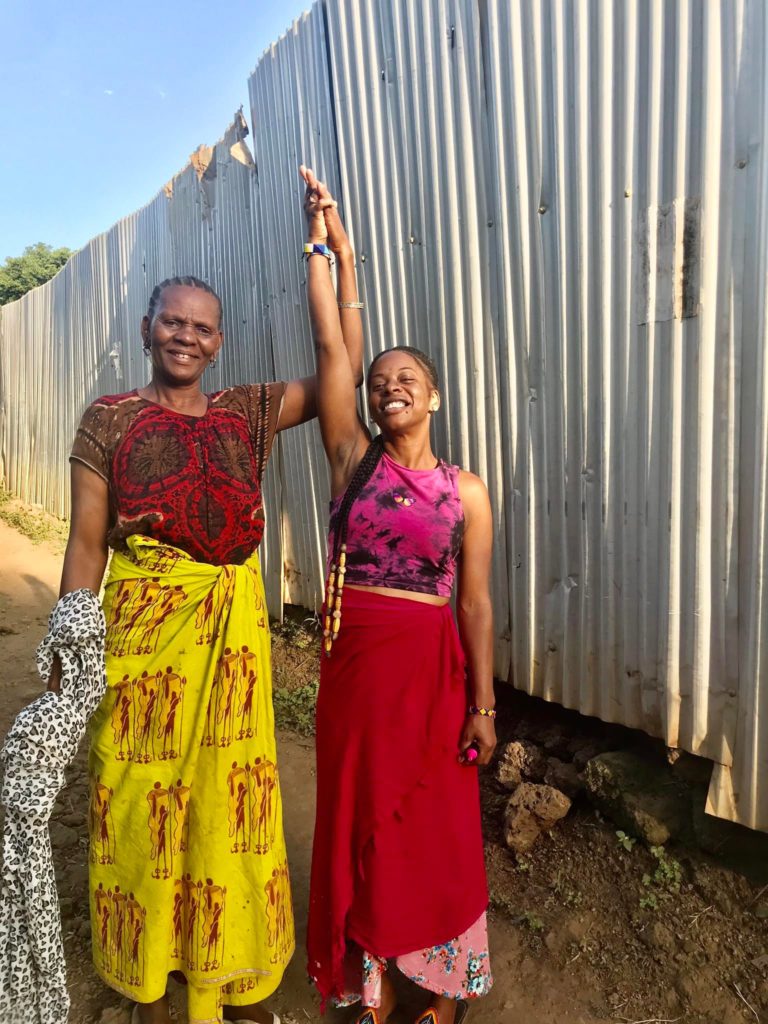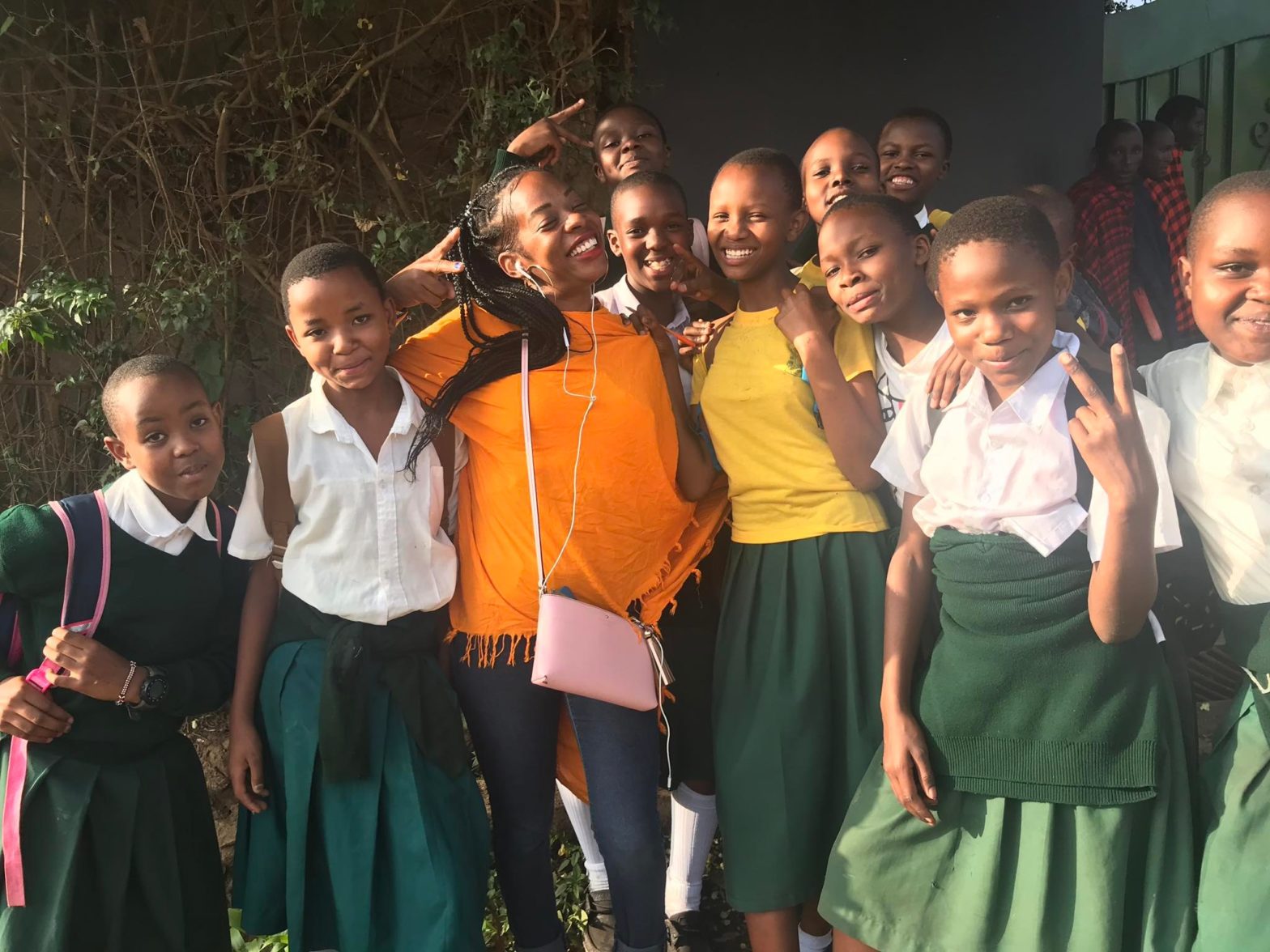Although Riziki Bunch moved to Tanzania in the Fall of 2021, her journey to the East African country started long before she ever hopped on a plane.
Bunch had always had a heart for helping young women and education reform for girls living in third world countries. However, her own personal demons blocked her from having the impact she desired.
She was a functioning opioid addict but she didn’t fit the criteria of someone struggling with addiction. Her children were well taken care of, she ran a successful non-profit organization and even served as the youth pastor at her church. But after receiving counsel from her spiritual leaders, Bunch entered into inpatient rehabilitation where she began to heal her soul, recover from her addiction and found her purpose in life.
During her 11 month stay, Bunch came across an article discussing how difficult it was for girls in Africa to attend school. It was 2013 and girls were still walking miles to go to school only to be turned away when they arrived because of their gender. Because she lacked support growing up, Bunch had never really taken her education seriously. But the article struck a nerve in her and she decided she would one day go teach abroad in the Motherland.
“Educating girls now has become a thing, but back then when I wanted to move, educating girls was not a big idea in Africa,” Bunch said. “To see these girls struggle and walk five miles barefoot just to go to school, only to be turned away when they got there, that hurt me.”
Years later in 2017, Bunch moved to Uganda to teach. She stayed there for two years but didn’t feel like the country was a good fit for her. Bunch returned to the US but her dream of teaching girls in Africa remained at the forefront of her mind.
After doing research both on and offline and gathering her funds, Bunch relocated to Tanzania in November 2021. She’d fallen in love with the allure of the country that was overflowing with natural beauty and wanderlust led her right to where she needed to be. Home to Mount Kilimanjaro and the Serengeti, Bunch found comfort in the communal, humble Tanzanian society.

“The people have a pride in their country and the food is great,” she said. “The people are polite and extremely humble, I cannot stress that enough, very nice and non-violent.”
Before she left the US, Bunch secured a job as an online tutor and language teacher. She decided to live in an Airbnb until she found a place to stay and suggests having at least $5500 saved up to move efficiently. However, she found it difficult to lock in housing without being in the country.
“It is almost impossible to acquire housing without being on the ground,” she said. “That’s not something I would suggest.”
Once she arrived in Tanzania, Bunch paid a local woman for a consultation to help her find a place to live. Ten days later, she was in her first apartment. The one-bedroom was a standard living space that only had the basics. With an exchange rate of 10 thousand shillings equaling 5 US dollars, Bunch’s first place only cost her 75 dollars a month. Utilities were cheap too and she was blessed by the beautiful climate of the country. However, not long after she settled into her new home, her mental health began to fall apart.
“After I moved into that apartment, I started to experience a breakdown in my mental health,” she said. “After all of the dust settles and you’re settled, that’s when reality starts to set in. So I’m in Africa and I recognize this is not a visit but I live here now. So my mental health started to get a little rickety.”
Bunch’s journey abroad made her realize she’d carried all of her fears and insecurities with her to Africa. Her suitcases contained more than just shoes and clothes and buried at the bottom lived anxiety, loneliness, and trust issues she’d carried in bags her entire life.
“I didn’t even realize how messed up I really was until I got here,” she said. “I didn’t even realize how bad the society of America had made me distrustful on every level.”

Although she’d entered into a six-month lease, Bunch left that apartment and moved into a house in a Tanzanian neighborhood. She began to interact more with the locals and found them to be friendly and trusting. She developed relationships with the local women, buying handmade clothes from them and taking advantage of their superior hair braiding services. After a short time, she was renamed Riziki after forming a bond with the community.
“They don’t carry any of that Western attitude or baggage so it’s very easy for you to get what you need done with Tanzanian women,” she said.
Bunch also discovered the beauty and humbleness of Tanzanian men which was a vast difference from her experience with black men in America.
“It’s just a better quality man, that’s all I will say,” she said. “They have a hustle game that won’t quit, they are very gentle and caring and this is all across the board. It’s like a better version of an African-American man.”
While she is not currently in a serious relationship, Bunch’s experience as a single woman in Tanzania has been blissful. Having had trust issues with black men throughout her life living in the US, Bunch has found Tanzanian men to be a breath of fresh air. With their trusting ways, defining strength, and desire to provide, Bunch believes the local men are attracting more single, black women to the country.
“You’re going to be able to get unadulterated hands-on training from a Tanzanian man,” she said. “He’s going to take you under his wing and he’s going to teach you everything that you need to know to live as a Tanzanian woman or to live here successfully. He’s going to teach you how to cook, what to cook and how to cook it. He’s going to teach you the language and he’s going to do all that he can do for you.”

With so many available Tanzanian men, Bunch says it is easy to be seduced if you’re new to the community and encourages single women to take their time when dating in the country by practicing delayed gratification.
“It’s wise to take it slow,” she said. “It’s wise to take your time only because you don’t want to be taken advantage of.”
Bunch’s rapport with the locals has continued to grow in the four months since she arrived in Tanzania. She also has found comfort in the cuisine and describes it as a small taste of home. Dishes like mboga, a quickly prepared vegetable similar to collard greens, and nyama choma, seasoned steak bites, remind her of the food she ate before venturing overseas.
“I like the food because it’s more like what we eat as African-Americans,” she said. “It’s not too far from the base. So I can relate to some of the food.”
Bunch’s experience thus far in Tanzania has been nothing short of a dream fulfilled. Surrounded by natural beauty and a loving community, her only complaint about living in the African country is negotiating with merchants while shopping. Although there are some stores that have set prices, it is impossible to live in Tanzania without visiting the local markets and having to haggle to secure your goods.

“I’m accustomed to going in the store, knowing what I’m paying for, then leaving,” she said. “I’m not accustomed to having to haggle because you don’t have to do that in the US.”
Aside from the tug of war she sometimes faces at the markets, Bunch feels grounded in her decision to relocate abroad. Thankful to be amongst such a proud people with a rich history, she encourages others seeking to move to Tanzania to be open-minded and accepting of the culture they will encounter once they touch down.
“Just be open,” she said. “This Is their country, this is their nation and you have to earn your right. You’re not going to change them. They are happy the way they are and they are proud of who they are. And you’re not going to change them.”
Still focused on her own personal healing and growth, Bunch’s time in Tanzania has been a reflective and introspective journey that began years before her feet touched African soil. Now living her dream of educating internationally, her mind is set on continuing the inner self-work she needs to do in order to make an impact on those who need her help the most.





